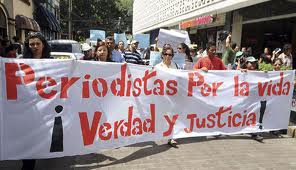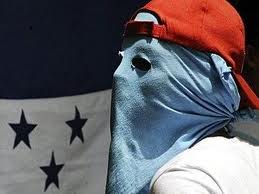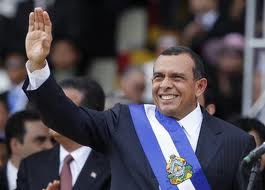Honduras faces serious challenges in combating violence and insecurity. The pervasive impunity and absence of effective investigations of human rights violations undermine the administration of justice and damages the public’s trust in authorities. The 2009 coup d’état aggravated institutional weaknesses, increased the vulnerability of human rights defenders and provoked a major polarisation in society. Due to the exposed nature of their activities, human rights defenders continue to suffer extrajudicial executions, enforced disappearances, torture and ill-treatment, death threats, attacks, harassment and stigmatisation
Lack of protection to Human Rights defenders
 M. Sakaggya has observed that certain categories of human rights defenders are at particular risk, including journalists, staff of the National Human Rights Commission, lawyers, prosecutors and judges, as well as defenders working on the rights of women, children, the Lesbian, Gay, Bisexual, Transgender, and Intersex community, the indigenous and Afro-Honduran communities as well as those working on environmental and land rights issues. Extremely worrying fact is that public officials, including high-ranking authorities, have made public statements which stigmatise human rights defenders. There is information indicating that human rights defenders working on the protection of the rights of LGBTI have been threatened and persecuted because their work is perceived to defend immoral behaviour. Defenders working on children’s rights have been harassed, particularly those denouncing social cleansing of children and youth at the hands of public and private actors. Women’s organisations raised concerns that, due to pervasive gender discrimination, their complaints of violations against their integrity and work are dismissed and that they suffer intimidation by the authorities, in particular members of the police force.
M. Sakaggya has observed that certain categories of human rights defenders are at particular risk, including journalists, staff of the National Human Rights Commission, lawyers, prosecutors and judges, as well as defenders working on the rights of women, children, the Lesbian, Gay, Bisexual, Transgender, and Intersex community, the indigenous and Afro-Honduran communities as well as those working on environmental and land rights issues. Extremely worrying fact is that public officials, including high-ranking authorities, have made public statements which stigmatise human rights defenders. There is information indicating that human rights defenders working on the protection of the rights of LGBTI have been threatened and persecuted because their work is perceived to defend immoral behaviour. Defenders working on children’s rights have been harassed, particularly those denouncing social cleansing of children and youth at the hands of public and private actors. Women’s organisations raised concerns that, due to pervasive gender discrimination, their complaints of violations against their integrity and work are dismissed and that they suffer intimidation by the authorities, in particular members of the police force.
Freedom of expression
 Recently there have been numerous reports of serious violations of and restrictions on the freedom of expression since the coup d’état. An alarming number of journalists were killed in 2009 and 2010. Measures to restrict the media remain in place and have resulted in self-censorship among journalists. Numerous community radio stations were closed shortly after the coup and remain inoperative. This affects in particular the right to access information among indigenous and Afro-Honduran communities.
Recently there have been numerous reports of serious violations of and restrictions on the freedom of expression since the coup d’état. An alarming number of journalists were killed in 2009 and 2010. Measures to restrict the media remain in place and have resulted in self-censorship among journalists. Numerous community radio stations were closed shortly after the coup and remain inoperative. This affects in particular the right to access information among indigenous and Afro-Honduran communities.
The absence of a national protection programme for human rights defenders is a principal concern which has been echoed among a majority of stakeholders. Authorities have also shared the same concern. M. Sekaggya specifically emphasized that the State has an obligation to demonstrate due diligence and take preventive measures to protect persons who are at risk for having defended human rights. The lack of protection for human rights defenders at risk increases their vulnerability, obstructs the ability of authorities to undertake investigations and thereby contributes to the cycle of impunity.
Judicial system needs to be reformed and improved
 The Public Prosecutor’s Office ability to undertake effective and impartial criminal investigations is seriously undermined by the alleged participation and collusion of police force members in committing crimes, including serious violations of human rights. I received information indicating that police agents, including at senior levels, have impeded and obstructed investigations. The Human Rights Office of the Public Prosecutor is seriously affected by political interference, lack of efficiency and lack of resources and their staffs has been subjected to threats. UN rapporteur was informed by human rights defenders that due to their fear of the police, they abstain from seeking protection as they consider that contact with the police exposes them to increased security risks. The only measures for protection currently available are provided by the police; however it has no specific unit with vetted officers to provide protection. M. Sekaggya met several human rights defenders who observed that the police officers assigned to provide their protection were frequently rotated and that not knowing who was assigned to provide protection increased their feeling of insecurity. One human rights defender with precautionary measures commented that the police who were assigned to be providing protection were confused about their task and presumed that the human rights defender was on provisional release. Consequently, the person who was supposed to be receiving protection was treated as a suspect rather than a victim.
The Public Prosecutor’s Office ability to undertake effective and impartial criminal investigations is seriously undermined by the alleged participation and collusion of police force members in committing crimes, including serious violations of human rights. I received information indicating that police agents, including at senior levels, have impeded and obstructed investigations. The Human Rights Office of the Public Prosecutor is seriously affected by political interference, lack of efficiency and lack of resources and their staffs has been subjected to threats. UN rapporteur was informed by human rights defenders that due to their fear of the police, they abstain from seeking protection as they consider that contact with the police exposes them to increased security risks. The only measures for protection currently available are provided by the police; however it has no specific unit with vetted officers to provide protection. M. Sekaggya met several human rights defenders who observed that the police officers assigned to provide their protection were frequently rotated and that not knowing who was assigned to provide protection increased their feeling of insecurity. One human rights defender with precautionary measures commented that the police who were assigned to be providing protection were confused about their task and presumed that the human rights defender was on provisional release. Consequently, the person who was supposed to be receiving protection was treated as a suspect rather than a victim.
 There is also information indicating a lack of independence and impartiality of the judiciary which undermines both the effectiveness of the administration of justice and the potential role of judges as human rights defenders. As a consequence, protection remedies such as habeas corpus and the writ of amparo become illusionary mechanisms. The absence of an independent body to safeguard the independence of the judiciary and to supervise the appointment, promotion and regulation of the judicial profession has resulted in political interference which jeopardises the legitimacy of the judiciary. US representitive observed that the incertitude over judges’ tenure is detrimental to the exercise of their functions.
There is also information indicating a lack of independence and impartiality of the judiciary which undermines both the effectiveness of the administration of justice and the potential role of judges as human rights defenders. As a consequence, protection remedies such as habeas corpus and the writ of amparo become illusionary mechanisms. The absence of an independent body to safeguard the independence of the judiciary and to supervise the appointment, promotion and regulation of the judicial profession has resulted in political interference which jeopardises the legitimacy of the judiciary. US representitive observed that the incertitude over judges’ tenure is detrimental to the exercise of their functions.
***
The full report can be found here





